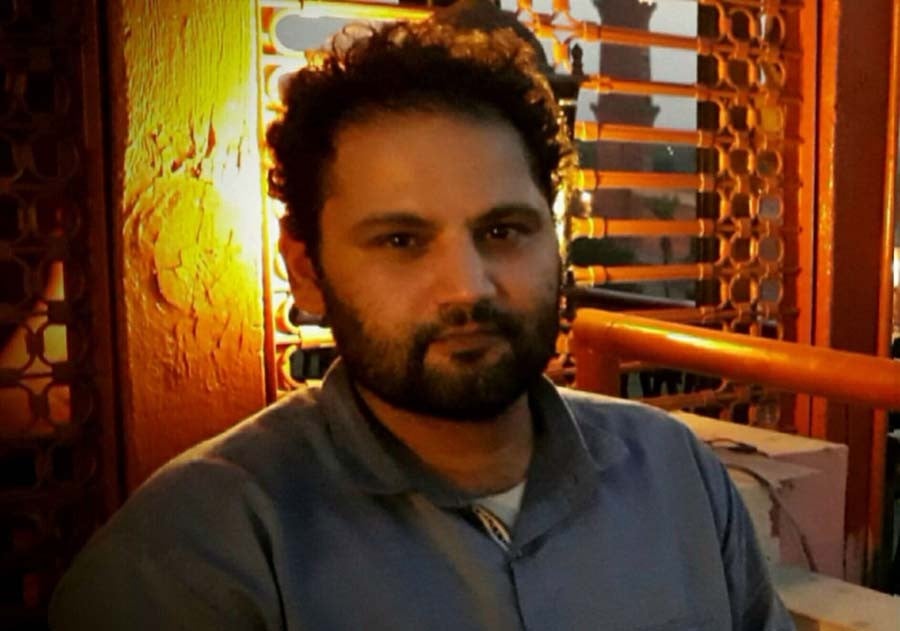
Sarim Baig’s novel explores how the increasing intolerance of society forces people to become either saints or charlatans, and how it’s sometimes hard to tell the difference

Entrenched in contemporary realities that define and damage us in equal measure, Saints and Charlatans explores how the narrow purview of our times moulds people in strange and unpredictable ways. In one fell sweep, Sarim Baig’s nine interlinked stories offer a rare portrait of individuals who conform, rebel and feign allegiances in their arduous quest to survive.
Set in the fictitious neighbourhood of Rampura in Lahore, these short stories are peopled by a diverse array of characters who are embroiled in similar dilemmas. Through their uneasy and niggling conformity, and small rebellions, the author navigates the nebulous terrain between rigid morality and the desire for individuality. In their fervent attempts to dream and escape the drudgery of their world, these characters either take calculated risks or succumb to impulses, even though the results aren’t entirely favourable.
At first glance, Baig’s stories are dominated by male protagonists. Although women slide in and out of these narratives, they are often portrayed in a stereotypical sense and seldom arrive at the personal epiphanies that the male characters do. It would be unfair to fault a writer for choosing a particular gender for his or her characters. But the sheer absence of women makes readers acutely aware of the public-private divide that keeps women within the inner courtyard.
While these stories focus primarily on men who inhabit the public domain, they cannot be categorised as testosterone-fuelled narratives. On the contrary, these interconnected tales are laced with sensitivity. Male-centric ideas and fixed gender roles are rendered in a nuanced manner and frequently called into question in unique ways. As a result, the author is able to successfully present an astute and painful dissection on masculinity. ‘Bougainvillea’, the first story in the collection, shows how a young boy’s perceptions of a "mighty strong, and brave as hell" arm-wrestling champion in Rampura evolve, after he finds him in a compromising position.
On one level, this story indicates how our preconceived notions of masculinity can cloud our judgment and stifle our ability to empathise with people. On another, it reflects how our straitjacketed views on masculinity can compel us to suppress our true identities and adopt a blunt refusal to compromise on rigid ideals.
Other stories in Saints and Charlatans are less discerning in their representation of masculinity. ‘Our Zubi Uncle, or The Man who Traveled the Travel’ depicts how it is difficult to erase a man’s "lingering fantasies about the free life of a bachelor". Sunny Mustaqim’s life-altering interactions with Zubi Uncle, the proverbial black sheep of the family, helps him break away from the shackles of matrimony and a settled family life, and venture into the great unknown. While this premise is fascinating, it runs the risk of being misinterpreted as overly androcentric. The story seems all the more problematic because the role of women in this story seems to be limited, if not altogether unimportant. Sunny’s mother is viewed as a nagging presence while his relationship with his fiancée verges on an unspoken frustration.
But the crowning glory of ‘Our Zubi Uncle, or The Man who Traveled the Travel’ is Zubi Uncle himself. His character fits seamlessly within the overarching theme of Saints and Charlatans and shows how scepticism, harsh judgements and ignorance can shape people’s circumstances and choices.
The setting of these stories is arguably the most interesting aspect of Baig’s work. In many ways, Rampura is more than just a locale. Rampura inhabits each of these stories as much as they inhabit its imagined surroundings. It can be likened with R K Narayan’s Malgudi. It is a land of fantasy wherein characters yearn for real things, but are pulled back to its magical precincts by subtle and strange limitations.
Saints and Charlatans falls into a category of Pakistani fiction that represents a local literary idiom. These stories don’t pander to Western sensibilities or portray Pakistan through the blinkered lens of an outsider. Characters like a mirasi (traditional singer), a trash-picker and an aged schoolteacher seldom receive critical attention in contemporary Pakistani fiction. There is an essence of familiarity that attracts readers towards Baig’s stories.
But this is by no means an easy book to read. The narratives are fuelled by the dark realities that are often difficult to stomach. Written with heartbreaking honesty, Baig’s collection smartly catches the ironies, ambiguities and emotional turmoil that surround these painful truths. There are moments when the author gives preference to telling these stories rather than allowing the characters to seize the reins and drive these own stories to their dramatic conclusions. More often than not, the narrative arc isn’t always clear. As a result, Baig’s narrators tend to shuffle between the past, present and future in a manner that might confound some readers. Nevertheless, these lapses don’t render the book any less powerful or poignant.
Saints and Charlatans
Author: Sarim Baig
Publisher: Mongrel Books, 2018
Pages: 207
Price: Rs 665